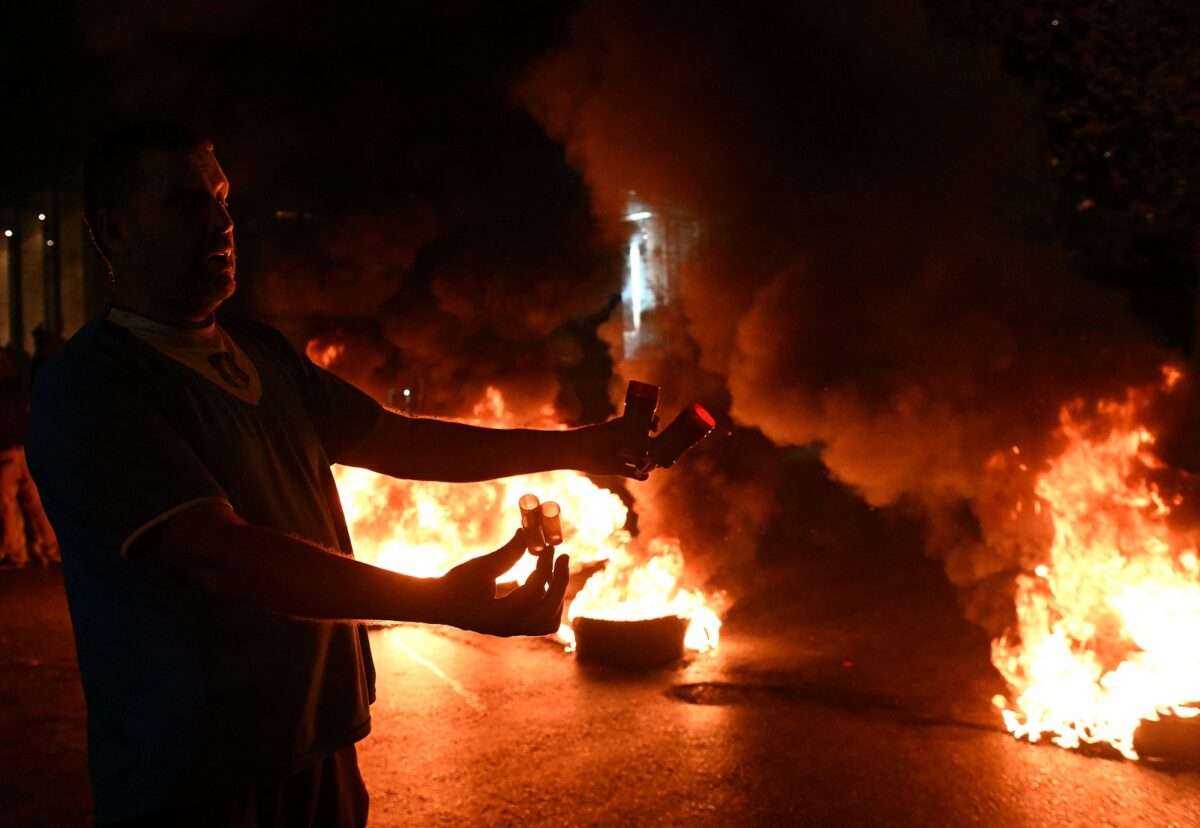
For the retired Lebanese army, having to protest on the streets against young recruits from the same army is a real humiliation as they search for their rights amid Lebanon's economic crisis that has devalued their salaries significantly.
Their protests are fueled by the severe devaluation of their pensions, the collapse of state services, and the government’s inability to meet their basic needs, all of which have left these former soldiers struggling to survive.
These protests have emerged as a powerful symbol of disillusionment with the government, highlighting both the economic challenges and the social status of the army at the moment.
Devalued pensions & economic hardship:
One of the primary struggles retired army personnel face is the massive devaluation of their pensions due to Lebanon’s unprecedented financial collapse.
Before the crisis, retired soldiers received pensions in Lebanese lira, which were sufficient for maintaining a decent standard of living. However, the currency’s dramatic depreciation, losing over 90 per cent of its value since 2019 has slashed the purchasing power of their pensions to almost nothing.
“Many retirees now find themselves with pensions worth just a few dozen dollars per month, insufficient to cover the cost of food, healthcare, and basic utilities, so unless the Lebanese government finds a way to stabilize the economy and restore the social safety nets that veterans rely on, these former protectors of the nation may face a future of poverty, illness, and frustration.” Dr Hitaf Kattan, Political scientist and economist at Beirut Arab University explained to NOW.
Loss of dignity & a feeling of betrayal – Psychological toll
Retired army veterans, who once served to protect the nation, are now grappling with feelings of abandonment and social stigma. Many of them feel that their years of service have been forgotten by the state, leading to a loss of dignity.
The sense of betrayal is especially present for those who sacrificed their youth and health for Lebanon’s security, only to face economic ruin in their retirement years.
Retired lieutenant, Adnan Moussawi told NOW: “After serving my country for more than 30 years in the Lebanese army, I thought my retirement would bring me some peace. I expected that after dedicating my life to the defense of this nation, I would at least have the dignity of a secure pension and the ability to care for myself and my family in old age but today, we are living a different reality.”
“Our children have had to leave Lebanon to find work abroad, just to send a little money back home. It breaks my heart to see the sacrifices we made as a family crumble in the face of a government that refuses to listen or act,” He added.
For many retired military personnel, the economic crisis is not just a financial burden, but a psychological one. The army is a highly respected institution in Lebanon, and soldiers, both active and retired, are symbols of national unity and protection.
Now, with their once-esteemed positions stripped of financial security and dignity, many feel abandoned and forgotten by the state they once served.
“Retired officers, who once held leadership positions and received respect, now experience a sense of loss and purposelessness. The psychological toll of losing financial stability, coupled with the struggle to provide for their families and the inability to access proper medical care, has left many of them battling depression and anxiety,” explained Dr Hitaf.
Healthcare and Medical Needs neglected
Ageing retired individuals, many of whom suffer from service-related injuries or age-related health conditions, face severe challenges in accessing medical care.
Lebanon’s healthcare system has crumbled under the weight of the financial crisis meaning that the costs of medical services and medications have skyrocketed, while government assistance, which was once available to all Lebanese army members, has dwindled and become limited.
“Retired soldiers, particularly those suffering from chronic conditions like heart disease or diabetes, struggle to afford their treatments. Many are forced to choose between buying medicine or other basic needs such as food and electricity,” Said Samer Kassam, a healthcare worker at the central military hospital.
In the face of these hardships, many retired army have taken to the streets to protest against the government. Their demands include adjustment of pensions, protection of healthcare benefits and better living conditions.
“We are calling for pensions to be tied to the U.S dollar or to be adjusted to reflect the hyperinflation so that there is at least some respectful value to our money,” Ramzi Haddad, a former soldier in the Lebanese army told NOW.
“We also want to ensure that the state fulfils its promise of lifelong healthcare coverage for military personnel and their families,” Ramzi added.
Protests have seen veterans block roads, rally outside government buildings, and make pleas to the state to recognize their service and protect their rights. Some of these protests have been met with indifference, while others have led to minor exceptions but the overall situation remains dire.
In response to the crisis, the Army Veterans Association has taken on a more prominent role in advocating for retired soldiers’ rights. The association has worked tirelessly to lobby the government, raise awareness of the plight of retired military personnel, and provide emergency assistance to veterans in need. However, with limited resources, the association is stretched thin and unable to meet the overwhelming demand for support.
Rodayna Raydan is a Lebanese-British journalist. You can follow her on Twitter @Rodayna_462
The views in this story reflect those of the author alone and do not necessarily reflect the beliefs of NOW.








